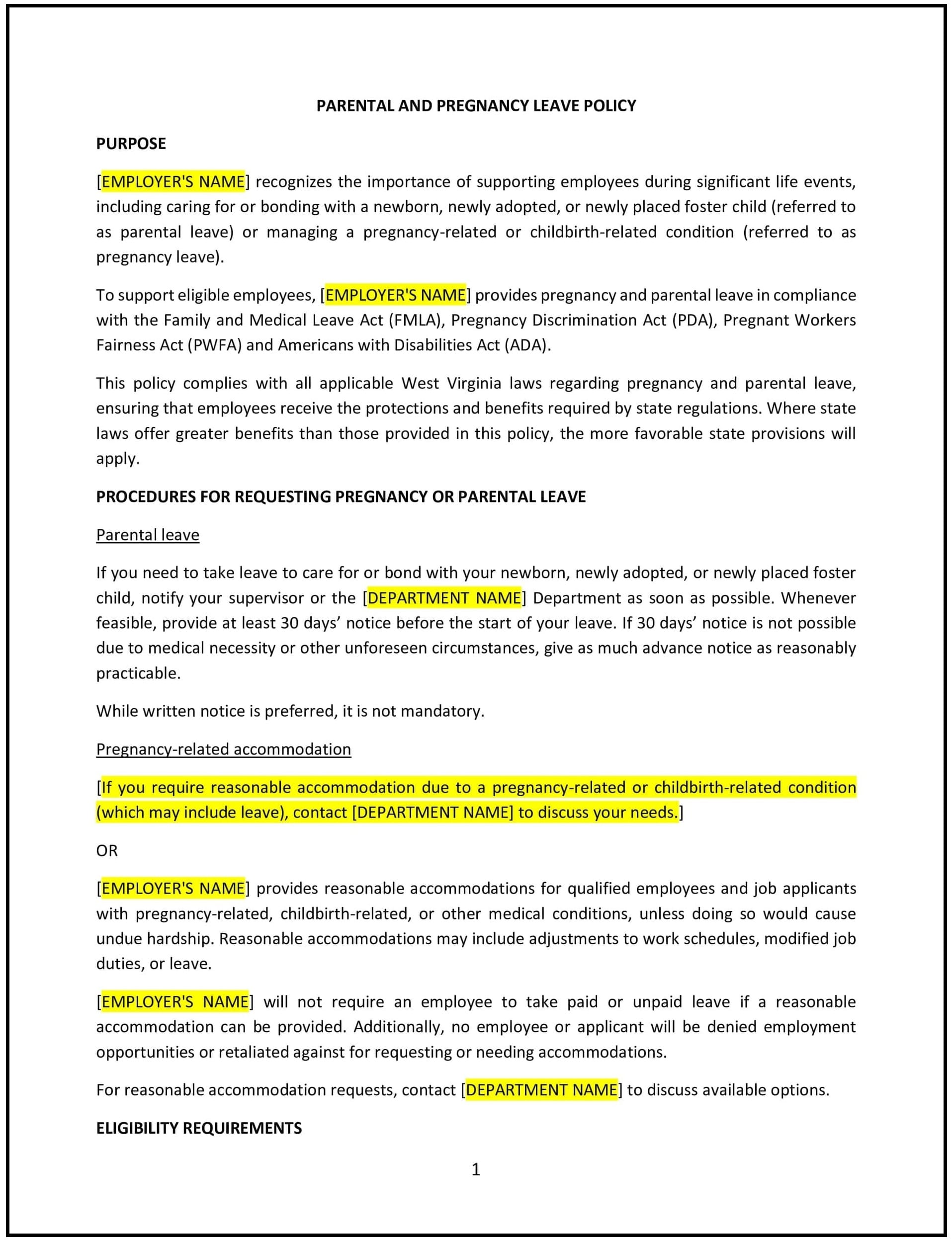Parental and pregnancy leave policy (West Virginia): Free template
Got contracts to review? While you're here for policies, let Cobrief make contract review effortless—start your free review now.

Customize this template for free
Parental and pregnancy leave policy (West Virginia)
In West Virginia, a parental and pregnancy leave policy outlines an organization’s approach to supporting employees during pregnancy, childbirth, adoption, or fostering. This policy promotes compliance with federal and state laws, such as the Family and Medical Leave Act (FMLA), while fostering a supportive work environment for employees managing parental responsibilities.
The policy defines eligibility, procedures for requesting leave, and guidelines for job protection and benefits during the leave period.
How to use this parental and pregnancy leave policy (West Virginia)
- Define eligibility: Specify which employees qualify for leave based on tenure, hours worked, and other criteria under FMLA or West Virginia laws.
- Outline leave types: Detail the types of leave available, such as maternity, paternity, adoption, or foster care leave, and their respective durations.
- Provide the request process: Explain how employees can request leave, including notice periods, required documentation, and approval steps.
- Address pay and benefits: Clarify whether leave is paid or unpaid and outline any benefits continuation, such as healthcare or retirement contributions, during the leave period.
- Support compliance: Align the policy with FMLA, West Virginia parental leave laws, and anti-discrimination regulations to ensure legal adherence.
Benefits of using a parental and pregnancy leave policy (West Virginia)
- Supports compliance: Improves adherence to federal and West Virginia laws governing family and medical leave, reducing legal risks.
- Promotes work-life balance: Enables employees to manage family responsibilities without jeopardizing their job security.
- Enhances employee trust: Demonstrates the organization’s commitment to supporting employees during major life events.
- Reduces disputes: Provides clear guidelines for managing leave requests, minimizing misunderstandings or conflicts.
- Fosters retention: Encourages loyalty by offering support to employees during pregnancy, adoption, or fostering.
Tips for using a parental and pregnancy leave policy (West Virginia)
- Communicate the policy: Share the policy with employees during onboarding and ensure it is easily accessible for reference.
- Train managers: Provide training to supervisors on handling leave requests with sensitivity and ensuring compliance with applicable laws.
- Maintain documentation: Keep records of leave requests, approvals, and communications to ensure transparency and accountability.
- Offer resources: Provide access to resources such as employee assistance programs (EAPs), healthcare benefits, and childcare support.
- Review periodically: Update the policy to reflect changes in West Virginia laws, federal regulations, or organizational practices.